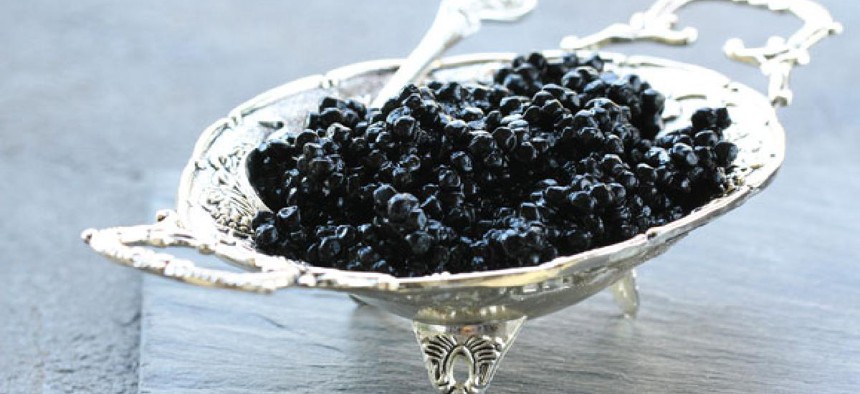
Dream79/Shutterstock.com
The book of government waste: from robo-squirrels to caviar
Senator lists 100 government-funded projects he deems unnecessary.
Congress has taken a "let them eat caviar" attitude toward the American people, according to Sen. Tom Coburn, R-Okla.
As part of an annual "Wastebook" he released Monday, the Oklahoma Republican identified 100 government-backed projects, including a $300,000 effort to promote caviar consumption, that he says highlight the spend-happy nature of Congress at a time Americans are "struggling just to put the basics on the family dinner table." Combined, the projects total $18.9 billion in what Coburn sees as excess spending.
"How many nutritious school lunches could have been served with the $1.8 million in financial assistance provided to cupcake specialty shops?," Coburn asks in a letter at the start of the report.
The report derides initiatives from all branches of government, including some increased food stamp benefits for recipients that use medical marijuana, a NASA program designed to research proper food and drink for an unscheduled future mission to Mars and a $32,000 project to recreate a historic street out of Legos.
Coburn also calls out his colleagues for failing to address enough legislation, citing the statistic that they are on track to be the least productive legislature in history. The cost of their inactivity? $132 million, according to the report.
"Many high school student councils have been more deliberative than the U.S. Senate," the report reads.
Not every line item in Coburn's tally adds up. Many of the projects he ridicules list several-thousand-dollar price tags - with fine print below that explains the initiative was "part" of a certain government-funded grant costing that overall amount. In his tally of wasteful spending, Coburn also includes several loan guarantees for companies that have yet to fail. Though taxpayers would be on the hook if the company did go under, the government will be repaid the balance of the loan if the company succeeds.
Examples from Coburn's report:
- $325,000 for an effort to build a lifelike Robo-Squirrel
- $27 million for a project that included pottery classes for Moroccan artists translated by someone who was not fluent in English - and using materials that cannot be purchased in Morocco.
- Almost $50,000 for Smokey the Bear hot-air balloon appearances.
- $505,000 in block grants for a pet shampoo and toothpaste company.
- $520,000 for an Ohio bridge that doesn't connect to a road or trail.
- $40,000 for a video game based on Thoreau's writings at Walden Pond.
- More than $540,000 for a dancing robot that DJs smartphones.
- Nearly $68,000 for a "Students Against Trash" poster campaign.
- $97,000 for a floating outhouse on an Oregon lake.
- $6.9 million for research into making rubber-free tires from natural materials.
- $35,000 for a book vending machine.
(Image via Dream79/Shutterstock.com)






